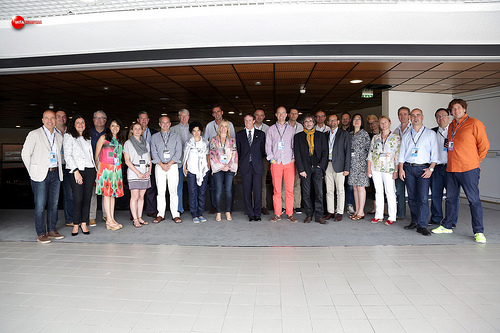The Global Route
31/01/2013
Back to the overview
Large, central deals with global media owners are being recognized as a more productive and value enhancing strategy by some of the world's largest advertisers.
A survey of members of the World Federation of Advertisers has found that 71% of those who had done a multimarket deal with a media owner felt the effort was worthwhile and plans to continue to negotiate such arrangements.
A further 29% of those surveyed thought the deal was worth the effort but that internal process needed to be refined.
This represents a massive improvement on the last such WFA survey in 2008, when only 36% of respondents were totally positive, 46% felt they needed to refine their processes and 18% thought the result was not worth the effort.
Responses from 17 WFA members for our 2012 survey found that half of respondents had closed multinational deals.
Such arrangements were most likely to be secured with digital media owners and 71% of respondents had negotiated multinational deals for online (including social, search, display and mobile). Fifty-seven percent had done so for TV and 29% for outdoor (down from 57% in 2008).
Benefits included not just reduced rates but also the ability to globally align efforts across platforms such as social media, mobile and online video. Other gains included incremental added value such as exclusivity and first look at new advertising opportunities.
However while multinational deals are becoming more accepted, they still need to be carefully managed. A recent meeting of the WFA;s APAC Media & Marketing Network in Singapore highlighted a number of risks and concerns that needed to be addressed.
Some of these related to the need to ensure promises were delivered, notably that exclusivity means exclusivity, and allocating enough resource to ensure promises are actually delivered both regionally and globally.
Other concerns expressed included the risk that committing to a single media owner across a range of markets might have impacts on local flexibility, skew media investment and impact on planning.
Sign up to monthly WFA news
A survey of members of the World Federation of Advertisers has found that 71% of those who had done a multimarket deal with a media owner felt the effort was worthwhile and plans to continue to negotiate such arrangements.
A further 29% of those surveyed thought the deal was worth the effort but that internal process needed to be refined.
This represents a massive improvement on the last such WFA survey in 2008, when only 36% of respondents were totally positive, 46% felt they needed to refine their processes and 18% thought the result was not worth the effort.
Responses from 17 WFA members for our 2012 survey found that half of respondents had closed multinational deals.
Such arrangements were most likely to be secured with digital media owners and 71% of respondents had negotiated multinational deals for online (including social, search, display and mobile). Fifty-seven percent had done so for TV and 29% for outdoor (down from 57% in 2008).
Benefits included not just reduced rates but also the ability to globally align efforts across platforms such as social media, mobile and online video. Other gains included incremental added value such as exclusivity and first look at new advertising opportunities.
However while multinational deals are becoming more accepted, they still need to be carefully managed. A recent meeting of the WFA;s APAC Media & Marketing Network in Singapore highlighted a number of risks and concerns that needed to be addressed.
Some of these related to the need to ensure promises were delivered, notably that exclusivity means exclusivity, and allocating enough resource to ensure promises are actually delivered both regionally and globally.
Other concerns expressed included the risk that committing to a single media owner across a range of markets might have impacts on local flexibility, skew media investment and impact on planning.
Sign up to monthly WFA news













































































